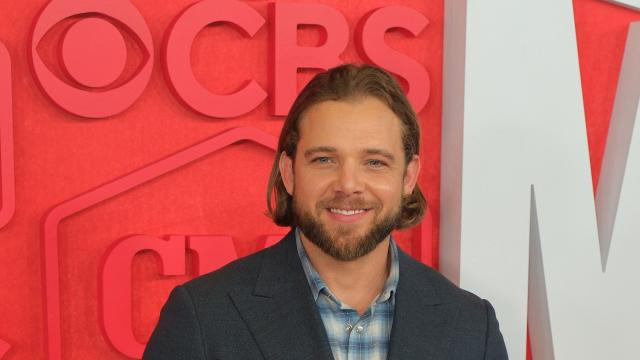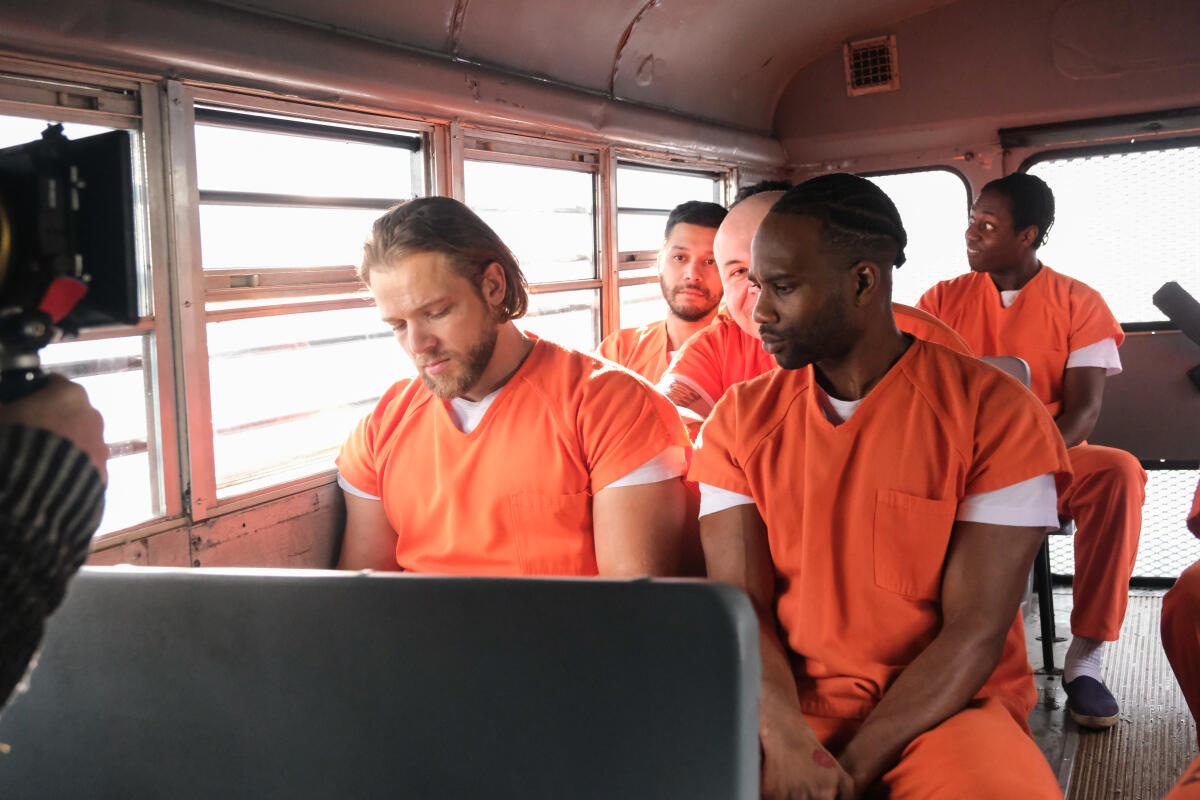
A Silent Mission Beneath the Spotlight
To the public eye, Max Thieriot is the charismatic actor-producer behind Fire Country, a show about redemption, brotherhood, and resilience. But behind the scenes — beyond red carpets and press junkets — Max has taken on a deeply personal mission that mirrors the core of his show: amplifying the real lives and struggles of those who fight wildfires and those who are fighting for second chances.
From advocating for inmate firefighters to providing quiet support to frontline responders and their families, Max has become a quiet force for change — choosing impact over headlines, and action over applause.
“If we’re going to tell these stories, we have to respect the people who are living them,” Max said in a rare off-camera conversation. “That responsibility doesn’t end when the cameras stop rolling.”
Fire Country Is Fiction — But Rooted in Truth
Max co-created Fire Country with the intention of shedding light on the real-life California inmate firefighting program, where incarcerated individuals volunteer to fight wildfires in exchange for reduced sentences, training, and a rare shot at dignity.
For Max, who grew up in fire-prone Northern California, this subject wasn’t just dramatic — it was personal. He knew the terrain. He’d seen the danger. And he’d long felt the moral complexity of the program: How do you honor bravery when it comes from the most overlooked people in society?
The creation of Fire Country was his way of raising awareness. But it didn’t stop there.
Visiting Inmate Fire Camps Privately
While working on the pilot, Max arranged private visits to actual inmate fire camps in California — not for press, not for photos. He simply wanted to listen.
He sat with men in orange jumpsuits who had saved homes, faced 40-foot flames, and lost fellow crew members in the line of duty — all while still being labeled “inmate” first.
What he learned shook him: their pride in the work, their shame at their past, their fear that once released, they’d never be allowed near a fire crew again.
“One man told me, ‘Fighting fire was the first time I felt like a man again,’” Max recalled. “That stuck with me.”
After those visits, Max pushed for scripts that showed nuance: that didn’t glorify or condemn, but captured the tension between punishment and purpose.
Donating Quietly — Not for Show

Though he rarely speaks about it publicly, Max has donated a portion of his Fire Country earnings to organizations that support formerly incarcerated people, especially those trying to transition into firefighting or emergency response work.
These include:
-
The Forestry and Fire Recruitment Program (FFRP) – a nonprofit that helps former inmate firefighters find jobs in fire services after release.
-
California Fire Foundation – which provides emergency support to families of fallen firefighters and mental health services to active-duty crews.
-
ARC (Anti-Recidivism Coalition) – which offers education and training programs for those leaving incarceration.
“This isn’t charity,” Max once said. “It’s investment. It’s restoring opportunity that should’ve never been taken away so permanently.”
Mentoring Behind the Camera
Max has gone even further by inviting formerly incarcerated individuals onto the Fire Country set, offering them shadowing opportunities with crew departments — from grip to set design, even writing.
He believes Hollywood has the power to retrain, reframe, and rehabilitate, not just through story, but through employment.
One such individual, who had served 12 years and fought wildfires for five of them, now works full-time in production, thanks to a connection Max helped establish.
“Max didn’t talk to me like I had a record,” he shared. “He talked to me like I had a future.”
Standing with Real Firefighters — Not Just Playing One
In addition to supporting former inmates, Max is deeply committed to the mental health and safety of real-life firefighters, many of whom are underpaid, overworked, and emotionally scarred from years on the line.
He has hosted closed-door roundtables with fire captains and hotshot crew leaders to understand what they need — not just in story accuracy, but in real support.
Following the Season 1 finale, Max partnered with FirefighterAid to send mental wellness kits to multiple departments in California, including sleep masks, stress tools, and direct access to trauma counselors.
He’s also advocated at the studio level for increased awareness campaigns on fire PTSD, suicide prevention, and burn survivor resources — using his platform not to speak for firefighters, but to hand them the mic.
Rejecting the Hollywood Savior Complex
What’s unique about Max’s activism is how low-profile it remains. He resists the “celebrity savior” image and avoids performative gestures.
He doesn’t post donation receipts. He doesn’t organize flashy galas. He does the work quietly, often through one-on-one connections, direct funding, or partnerships with people already embedded in the cause.
“If people remember my name more than the people I’m trying to help, then I’ve failed,” he said.
Changing the Narrative, One Episode at a Time
Max understands that real change happens slowly — and often invisibly. But through Fire Country, he hopes to change the way viewers think about redemption, justice, labor, and who gets to be called a hero.
He makes sure every inmate firefighter character has dignity, complexity, and agency. He shows the systemic flaws — but also the humanity.
“I want someone watching from a small town, from a prison cell, or from a firehouse to say: ‘That’s me. That’s real. That matters.’”
The Work Is Just Beginning
As Fire Country continues into future seasons and potential spin-offs, Max is pushing to expand the show’s real-world impact. He’s in discussions with CBS about launching a formal job-training partnership for justice-impacted individuals. He’s also been approached by advocacy organizations to help shape public policy awareness campaigns.
But for Max, it’s not about being an activist. It’s about being accountable to the story he chose to tell.
“We created a show about second chances,” he says. “The least we can do is make sure those chances exist beyond the screen.”
